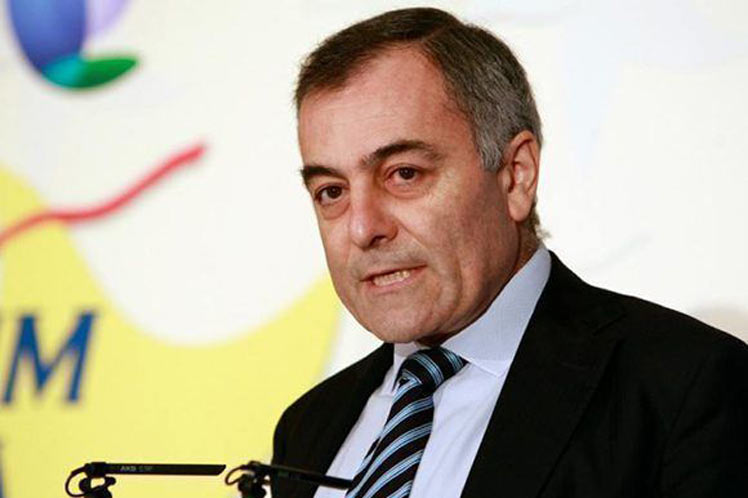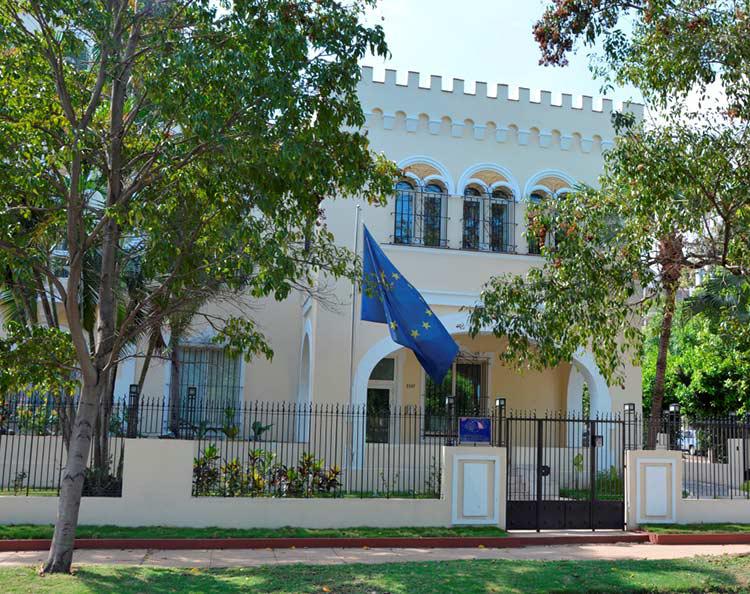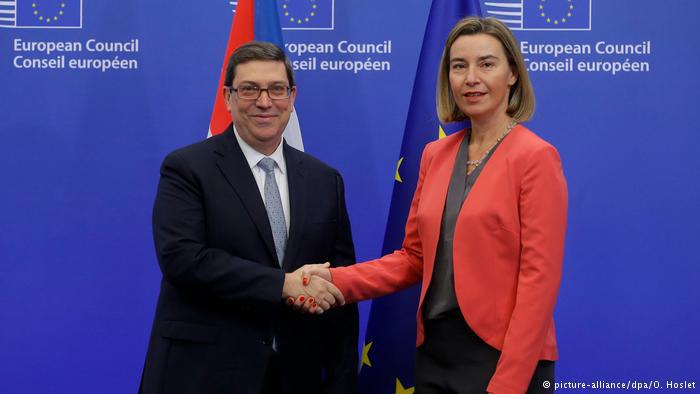EU Could Be Primary Beneficiary Of Title III And Title IV- If Cuba Listens To Them
/EU Could Be Primary Beneficiary Of Title III And Title IV- If Cuba Listens To Them
Not Exactly What The Trump Administration Has In Mind
Might the implementation of Title III and enhanced enforcement of Title IV of the Cuban Liberty and Democratic Solidarity Act of 1996 (Libertad Act) by the Trump Administration result in the Republic of Cuba permitting commercial, economic and political changes that it loathes- but which result in re-magnetizing the 800-mile archipelago?
That’s what the EU wants.
Might, however, those changes which the Trump Administration would seem to want to embrace from a macro perspective and micro perspective result in a further fortification of the 11.4 million residents of the Republic of Cuba from the interests of the United States business community?
The EU wouldn’t mind that either.
If the Republic of Cuba meaningfully restructures (which is unachievable absent of significant hardship; requiring robust leadership by the Diaz-Canel Administration), resolves issues with at least some of the United States-based certified claimants and only the certified claimants, then those non-United States-based (primarily EU-domiciled) companies which export to, import from, and provide services for the Republic of Cuba will have relationships worth far more than they are today.
Ambassador Alberto Navarro, Head of Delegation of the twenty-eight (28) member Brussels, Belgium-based European Union (EU) to the Republic of Cuba, at a 31 May 2019 forum sponsored by the Ministry of Foreign Affairs (MINREX) of the Republic of Cuba, was quoted in media reporting:
“Beyond looking at the past and criticizing the Helms-Burton law, there is also an opportunity here to improve the security of investments, to facilitate trade and investment and there the European Union will be with you,”
“[I]n these difficult times, seek the opportunity to improve the investment climate and to facilitate trade and investment,”
“[T]here are sufficient arguments for Cuba to understand that the countries with the greatest trade opening are the most prosperous in the world.”
“I have not seen any country emerge from underdevelopment through development aid and international solidarity (...) The countries that prosper are thanks to trade liberalization and foreign investment (...). unique, an opportunity,”
“What this legislation wants, and I think we all agree, is to create confusion and discourage investment,”
“There are businesspeople who've been here 20, 30 years, who've made bets on investing their financial resources in Cuba to stimulate commerce, tourism, international exchange, and many of them tell me that they haven't lived through a similar situation,”
From Thomson Reuters: “He encouraged Cuban reforms to make the island more attractive to foreign investors and offset disincentives created by the Trump administration policy.”
From the EU [https://eeas.europa.eu/delegations/cuba/area/contacts_cs]: “The EU remains Cuba's main export and second trade partner; the EU is also the biggest foreign investor in Cuba (mainly in the sectors of tourism, construction, light and agro-industries) and accounts for a third of the arriving tourists. In 2016, exports in goods to Cuba were worth €2.04 billion, and imports amounting to €0.41 billion. Cuba's main export goods are agricultural products, beverages and tobacco and mineral fuels for which there is no preferential trade regime. The aim of the PDCA [Political Dialogue and Cooperation Agreement] is to create a more predictable and transparent atmosphere for economic operators and increase their economic capacity to produce, trade and create jobs, but it does not establish a free trade area between the parties or cover investment protection. The EU advocates diversification of exports from Cuba beyond the traditional products, and cooperates to disseminate the necessary knowledge among Cuban exporters to improve the access of goods onto the EU market."
From Ambassador Navarro: Republic of Cuba bilateral trade with EU-member countries in 2018 exceeded US$2.6 billion of which approximately US$400 million was exports from the Republic of Cuba. In 2018, the EU represented approximately 35% of total trade for the Republic of Cuba.
Libertad Act
Title III of the Libertad Act authorizes lawsuits in United States District Courts against companies and individuals who are using a certified claim where the owner of the certified claim has not received compensation from the Republic of Cuba or from a third-party who is using the asset.
Title IV of the Libertad Act authorizes the United States Department of State to restrict entry into the United States by individuals who have connectivity to unresolved certified claims. One company is currently subject to this provision.
LINK To Complete Analysis In PDF Format




